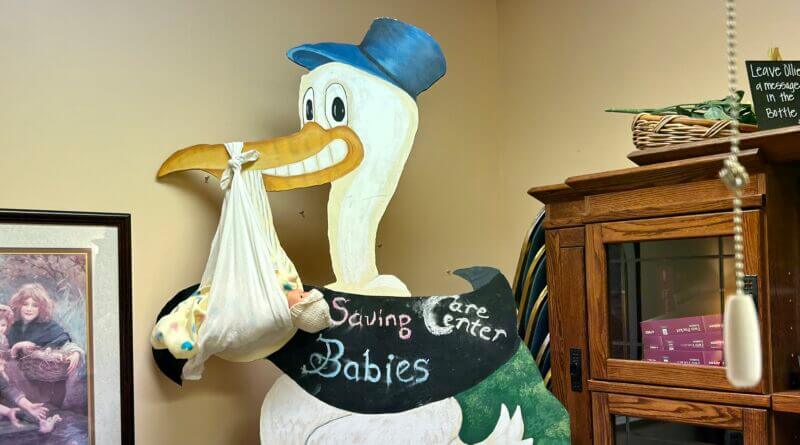Pregnancy Resource Center seeks support through tax credit
There was legislation passed by the Mississippi state legislature in 2022 that gives a tax credit for businesses to support Crisis Pregnancy Centers, such as the Care Pregnancy Resource Center (CPRC) at 1277 Main Street in Southaven. With the new law, businesses can support centers that offer support to women about to give birth who may not have had adequate medical care or don’t have the money to cover the care.
HB 1685 was passed and signed by Gov. Tate Reeves in May 2022. It gives a tax credit to those businesses who choose to donate to crisis pregnancy centers in Mississippi. In effect, a business can take its state tax bill and direct a percentage of that money to the crisis pregnancy center.
Called the Pregnancy Resource Act, the bill initially provided $3.5 million in tax credits. It was raised this summer to $10 million maximum among all of the state’s 23 pregnancy resource centers.
Under the new law, tax credits will be made available to taxpayers who operate a business as a commercial, industrial, or professional venture that is operating as a corporation, limited liability company, a partnership, or a sole proprietorship that supports pregnant mothers.
For taxpayers who are not operating as a corporation, according to the bill, the tax credit is permitted against ad valorem taxes assessed and levied on real property for each voluntary cash contribution made during a tax year. Those donations must be contributed to an eligible charitable organization.
The tax credits issued under the new law are not to exceed 50 percent of the total tax liability for taxes and an amount not to exceed 50 percent of the total tax liability of the taxpayer for ad valorem taxes that are assessed and levied on real property.
Plus the new law provides that any tax credit that is claimed but is not used in the tax year it was claimed can be carried over for not more than five years, according to the bill. In addition, any contribution that is claimed as a tax credit can’t be used as a deduction on state income taxes.
The new law also provides a cap on tax credits that during any calendar year the credits can’t exceed $5 million and no more than 50 percent of the tax credits allocated during a calendar year can be allocated for contributions to charitable organizations.
Dennis Hoaglum, a board member representing the Care Pregnancy Resource Center, said there are many places where additional funding could benefit the center’s mission.
“We have staff, we need to hire, there is a mobile unit we would love to get to take ultrasounds around the community,” Hoaglum said. “We really need more space, real estate-wise or to build a new center. We could go through millions of dollars pretty quickly, depending on how much is granted. We’re just committed to use whatever resources provided through this tax benefit to the glory of God.”
The CPRC offers its services prior to birth, helping the expectant mother do what’s best for her baby.



“It exists to help women in their hour of need when they have an unplanned pregnancy, or it may be planned but they don’t have the resources,” Hoaglum said. “They’re in need of care, for medical assistance, for helping the baby grow in the womb. Ultrasounds, we confirm there is a pregnancy, and just give them what they need.”
Doctors offer their expertise for mothers, who for whatever reason, have not seen a doctor before and the pregnancy has advanced to a point where many obstetricians may not want to take on the mother as a patient.
“If they haven’t seen the woman before 20 weeks, many times they don’t even want anything to do with her because they haven’t had the background to lead this lady into a healthy pregnancy,” Hoaglum said.
As a faith-based service, Care Pregnancy Resource Center steps in to help bring the baby to full term, support the mother with newborn supplies, and whatever counsel and services that they may need. Hoaglum said adoption advice is even available.
“We are unabashedly pro-life but we help in this situation,” he said. “We help with adoption, and try to set up resources for people. There is so much out there that we need assistance to do the best we can.”
Hoaglum stresses that businesses that participate are paying additional to support the Crisis Pregnancy Center, but rather, are declaring that a portion of their state tax liability they are paying goes to the center.
“We would like to encourage everybody who has a heart for the unborn to look at this bill to look at this bill and get behind it,” Hoaglum said.






